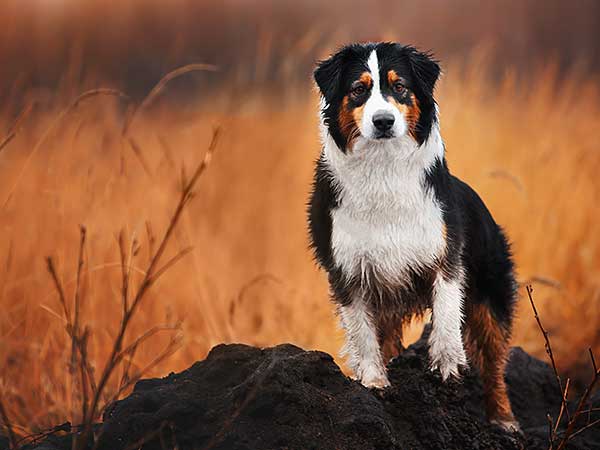
Understanding Lupus in Dogs
Lupus in dogs can occur at any time, usually in the adult years, and will require a lifelong course of treatment as there is no cure. It can be difficult to diagnose lupus as the symptoms may echo those of several other conditions. A proper diagnosis will require a veterinary examination, so if your dog is exhibiting any signs that could possibly be due to lupus it is important to get him to the vet as quickly as possible.
As in humans, lupus is an autoimmune disease, a class of illness in which the body begins to attack itself. The exact cause of the disease is not known, though its name comes from the Latin for "wolf" as it was originally believed to be caused by a wolf bite. That has been disproved but there is still no indication of a specific cause. Lupus can occur in dogs of any age, though it usually presents in dogs over 6 years of age.
There are two types of lupus in dogs: Discoid lupus erythematosus (DLE) and Systemic lupus erythematosus (SLE). DLE is less serious and mostly affects the skin, causing bald, crusty and irritated patches of skin on the face and head. In SLE, the disease affects the blood and organs including the heart, lungs, and kidneys. It can also affect the nerves and joints. While DLE may be considered less severe, both forms of the disease require immediate and continued treatment.

Kseniya / stock.adobe.com
In DLE, the most common symptoms include extreme redness of the skin, skin sores, cracking skin, loss of pigment and/or ringworm on the nose and itchiness. While any breed can develop DLE, it is most common in German Shepherds, Siberian Huskies, Alaskan Malamutes, Chow Chows, Shetland Sheepdogs, German Shorthaired Pointers and Brittany Spaniels. Since any kind of skin sore can ultimately lead to bacterial infection, you'll want to get them treated as quickly as possible.
SLE is more difficult to diagnose because the common symptoms, including joint and muscle pain, stiffness or lameness, lethargy, loss of appetite, hair loss, swollen lymph nodes and seizures, are common to many other ailments. This serious form of lupus in dogs can also occur in any breed but is most often found in Shetland Sheep Dogs, Old English Sheep Dogs, Afghan Hounds, Beagles, Collies, Irish Setters and Poodles. Lupus in any form is generally considered rare in Australian Shepherds, though it can still occur.
Diagnosing Lupus In Dogs
Your vet can run a number of tests to help diagnose Lupus. Once the diagnosis is made, he can make recommendations for treatment, which will generally include lifestyle adjustments to help minimize symptoms. Treatment for SLE may also include the use of corticosteroids for pain management or antibiotics to control infection. In some cases, chemotherapy may also be used to help manage pain and suppress abnormal immune system responses.
With the proper treatment, it is possible to successfully manage lupus in dogs. You'll probably need to make some adjustments to his normal routine such as limiting sun exposure, which can exacerbate symptoms, or making dietary changes, such as adding Vitamin E and Omega 3 and 6 fatty acids to help manage pain and alleviate symptoms.
While a diagnosis of lupus can be devastating, it doesn't have to be life threatening provided you get a proper diagnosis and begin treatment as soon as possible. With the right treatment plan, your dog can live a long and happy life despite his illness.
For more information about Lupus in Australian Shepherds see the Australian Shepherd Health & Genetics Institute (ASHGI).
Have Dog Training Questions?
Check out these introductory dog training videos...
I want my dog to stop being aggressive.
I want some help training my new puppy.
I want my dog to stop barking at everything.
Get Australian Shepherd Info, Website Updates, Special Offers, and Cartoons...
FREE GIFT
You'll also receive a free copy of the ebook
My Everyday Dog Training Tools
by professional dog trainer Daniel Abdelnoor, "Doggy Dan"









